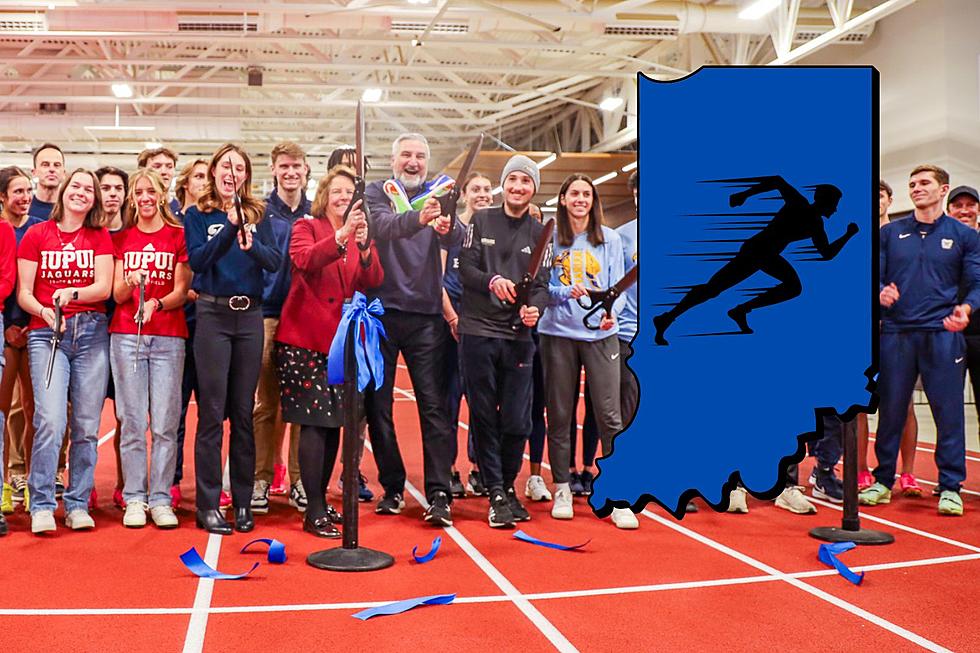
Serious Questions About The Sugarland Stage Collapse
I was at The Boiler Room Saturday night . . . waiting patiently for Jaclyn to take the stage . . . when news broke about Sugarland's stage collapsing at the Indiana State Fair. It didn't take long at all for video footage to make its way to You Tube, so we were passing our smartphones around so just about everyone in the crowd could see what happened. The footage was startling. I have probably been to a hundred concerts or so in my time and have emceed many of them. I have walked on stages, just like that one, dozens of times. In fact, I've stood on stages, just like that one, and have watched storms blow in and send crowds running for cover. I think that's why I have been so fascinated with this recent tragedy. I just can't quit watching the video clips and reading eyewitness accounts of what happened. But, because I have been so obsessed with this tragedy at the Indiana State Fair, I have noticed some serious problems with the stories about what really happened. The more people talk, the more information that comes to light, it is growing more and more evident that somebody, somewhere, dropped the ball.
Indiana governor Mitch Daniels reacted quickly to the news of the collapse. He called what happened at the fairgrounds a "fluke." Now granted, a stage collapse of this magnitude is a "fluke" in that they don't happen often (thankfully!). But, as Wayne Hart, WEHT Chief Meteorologist, pointed out during his August 15th broadcast, storms with damaging winds are no fluke at all. In fact, Wayne claims that fair officials knew of the threat of of the possibility of damaging winds and storms about 48 hours before the tragedy occured.
Check out this timeline . . .
At 1a, Saturday morning, the National Weather Service issued a Slight Risk of Severe Weather for Central Indiana. 7 hours later, at 8am, the NWS enhanced that risk. Just 11 hours later, at 6pm, that threat was made official with the issuance of a Severe Thunderstorm Watch. Just one hour later, according to Hart, the National Weather Service contacted officials with the Indiana State Fair and outlined the possibility for severe storms to strike the fairgrounds approximately 9pm.
Now, here's what I do not understand. At 8:30pm, Indiana State Police were dispatched to the grandstand to assist with an evacuation, but it seems no one at the grandstand . . . the artists performing the show, the crew working it, or the people watching it, knew anything about it. That was until 8:45pm, when the announcement was made that, if an evacuation was to take place, the crowd would receive instructions. Witness reports indicate that, in the same breath, the announcer said they were hoping to get the Sugarland portion of the concert in. Of course, that didn't happened. Just four minutes later, the stage collapsed . . . killing five and wounding dozens of others.
Adding more intrigue to this story is the news that broke today about how Sugarland avoided being statistics in the tragedy. Their tour manager, Hellen Rollens, is being credited with saving their lives because of a hunch, an instinct she had just before the band was to take the stage. Reports indicate that Sugarland and their team were just off stage in a prayer circle (a pre-show ritual), when Hellen looked up at the threatening skies and a had a gut instinct to keep them where they were. It's a damn good thing she did.
So, here's my question. If Indiana State Police had been dispatched to assist with a possible evacuation order, why was Sugarland about to go on stage? Why were they in their pre-show ritual? And why was their tour manager forced to step in and keep them from going on stage? Did someone actually think this band was going to play? I have watched the video over and over again . . . and I think folks in the crowd actually thought so.
Watch the video. On stage left and stage right, there are lighting effects. At first glance, I thought something on the stage (a piece of equipment or something) was reflecting flashes of lightning from off in the distance. But now I'm uncertain. It looks like part of Sugarland's light show had already begun. If so, WHY??
Watch the flashes on the left-hand side of the stage. When the structure collapses, you can tell the stage lights were on. I'm totally confused about the mixed signals here. And, obviously, the crowd was too. It doesn't seem anyone was trying to move until they realized those winds, estimated at 60 to 70 miles per hour, were causing the support beams to sway back and forth. It's then the crowd realized it was time to run for cover. But it was too late.
No, I wasn't there. And I suppose it's easy to sit back and watch this footage and draw conclusions. But something just isn't right. Wayne Hart points to the radar, which showed shades of yellow and dark red. Those images, at the time of the stage collapse, were still to the west of the fairgrounds. Wayne says the culprit was the gust front ahead of the line of storms. But again, we have to ask this question. That line of storms, packed with strong cloud-to-ground lightning and heavy rain, was just minutes away from hitting the fairgrounds. There was NO WAY this concert was going to take place. So, what was everyone waiting for? That grandstand should have been evacuated.
I have a feeling that this tragedy will be discussed, debated for years. And my hunch is the end of the story will be told in the court system. There's somebody, somewhere, who should have made the call and the call just simply wasn't made. At the very least, it wasn't made in time. One thing though is for certain. Sometimes it takes an unexpected tragedy to open eyes. And eyes are opened now. Fans of outdoor concerts are, for years, going to remember that awful night at the Indiana State Fair, when Sugarland's "Incredible Machine" was destroyed by an even more incredible act of nature. For concert promoters and organizers this is a blaring wake-up call. You can take a ticket price and tack on a service charge and facility fee . . . but no one should have the pay the ultimate price for entertainment.
More From WBKR-FM









